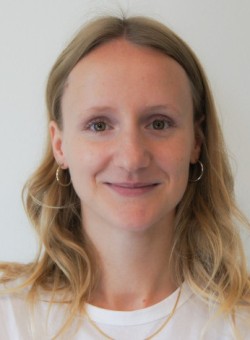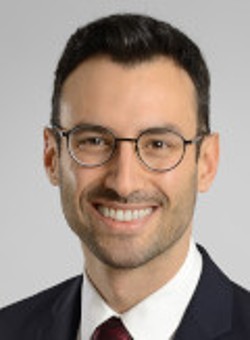
Overview
Our group studies how aging influences cognition and emotion using behavioral tools, peripheral physiology as well as structural, functional and pharmacological neuroimaging methodologies. We have a major current focus being the differentiation between successful and non-successful aging with respect to emotional health. The latter seems to be maintained by compensatory and adaptive mechanisms in response to age-related life and brain changes. We want to know how the brain contributes to this adaptation and whether/why this adaptation is lacking in non-successful aging like late-life depression. In our current studies, we investigate how emotional resilience in aging but also in younger age is modulated by cognitive and emotional regulation strategies, lifestyle behavior (i.e. weight management) and – as part of the newly established CRC 289 - treatment expectations.
- Staff
- Research topics
- Key publications
- Funding
- Awards
- Vacancies
-
Staff
 Prof. Dr.Stefanie BrassenTelefonE-Mail
Prof. Dr.Stefanie BrassenTelefonE-Mail
Lena Szabo, PhD student
As part of the CRC 289, my research combines behavioral paradigms with multivariate pattern analysis of neural data to investigate the neurobehavioral mechanisms underlying the effects of treatment expectations on emotional processing.

Emma Specht, PhD student
In my PhD research within the CRC 289, I will utilize EEG, eye-tracking, and behavioral measurements to investigate emotional effects of treatment expectations from a psychophysiological perspective.

Jonas Pautmeier, Master / MD student
I am a medical and psychology graduate student investigating the neurobehavioral mechanisms of expectation effects on emotional processing across the lifespan. As part of the CRC “Treatment Expectations”, my current research involves a cross-over fMRI study to examine how positive expectations influence emotional processing in older adults.

Darius Zokai, Clinician Scientist

Eun Jin Shim, MD student

Amelie Brühöfner, Master student
Alumni
Arasch Mostauli, Postdoc
Daniela Marrero Polegro, PhD student
Cristian Reyes Moreno,PhD student
Katrin Giesen, MD Physician
Judith Hettel, M.Sc. Psychology PhD student
Laura Katharina Sasse, Postdoc
Sophia Schneider, Postdoc
Paul Francke, cand. Med. MD student
Lena Tiedemann, M.Sc. Neuroscience PhD student
Riccardo Mattia Galli, M. Sc. Cognitive Neuropsychology PhD student
Vivien Breckwoldt, PhD Student
Joshua Baker, Postdoc
Friederike Thams, Postdoc
Jonas Rauh, MD Physician
-
-
Research topics
- Homeostatic, cognitive and neural modulators of eating behavior in young and older adults
- Decision making and counterfactual thinking in aging
- Effects of expectation on emotional processing across the life-span
-
Key publications
Thams F, Brassen S (2023) The need to change: Is there a critical role of midlife adaptation in mental health later in life? Elife 12:e82390.
Baker J, Gamer M, Rauh J, Brassen S (2022) Placebo induced expectations of mood enhancement generate a positivity effect in emotional processing. Sci Rep 12:5345.
Tiedemann LJ, Meyhöfer SM, Francke P, Beck J, Büchel C, Brassen S (2022). Insulin sensitivity in mesolimbic pathways predicts and improves with weight loss in older dieters. Elife 11:e76835.
Tiedemann LJ, Alink A, Beck J, Büchel C, Brassen S (2020) Valence encoding signals in the human amygdala and the willingness to eat. J Neurosci 40(27):5264-5272.
Francke P, Tiedemann LJ, Menz MM, Beck J, Büchel C, Brassen S (2019) Mesolimbic white matter connectivity mediates the preference for sweet food. Sci Rep 9(1):4349.
Tiedemann LJ, Schmid SM, Hettel J, Giesen K, Francke P, Büchel C, Brassen S (2017) Central insulin modulates food valuation via mesolimbic pathways. Nature Communications 8:16052.
Sasse LK, Peters J, Büchel C, Brassen S: Effects of prospective thinking on intertemporal choice: The role of familiarity. Hum Brain Mapp 2015; 36(10):4210-21.
Brassen S, Gamer M, Peters J, Gluth S, Büchel C: Don't look back in anger! Responsiveness to missed chances in successful aging. Science 2012; 336(6081):612-4.
Brassen S, Gamer M, Büchel C: Anterior cingulate activation is related to a positivity bias and emotional stability in successful aging. Biol Psychiatry 2011; 70(2):131-7.
Brassen S, Gamer M, Rose M, Büchel C: The influence of directed covert attention on emotional face processing. Neuroimage 2010; 50(2):545-51.
Brassen S, Kalisch R, Weber-Fahr W, Braus DF, Büchel C: Ventromedial prefrontal cortex processing during emotional evaluation in late-life depression: a longitudinal functional magnetic resonance imaging study. Biol Psychiatry 2008; 64(4):349-55.
-
Funding
CRC 289 Treatment Expectation, Project A06: Effects of expectation on emotional processing across the lifespan: the role of fronto-limbic function and attentional control (ID 422744262)
DFG Research Grant: The role of mesocorticolimbic networks for emotional adaptation and well-being in the second half of life (BR 2877/7-1)
DFG Research Grant: Metabolic-cognitive control of food choices and long-term dietary success in aging (BR 2877/6-1)
CRC 134 Ingestive Behaviour: Homeostasis and Reward, Project C03: The influence of weight and weight loss on homeostatic, mnestic and reward-related brain circuits in older adults
DFG Research Grant: Decision making in successful aging: Influence of temporal distance and socioemotional relevance (BR2877/2-2)
DFG Research Grant: Emotional processing in successful aging and late-life depression (BR2877/2-1)
DFG Research Grant: Decision making in successful aging: Influence of temporal distance and socioemotional relevance (BR2877/2-2)
Young Scientist Grant: UKE Multimodal neuroimaging study for the early detection of preclinical dementia (FFM F-154)
-
Awards
Poster award 2016 of the German Psychological Society (DGPs; Section Biological Psychology) for the poster "Insulin resistance and central insulin effects on food liking" (Lena Tiedemann)
New Investigator Travel Award 2016 of the Society for the Study of Ingestive Behavior (SSIB) in recognition of research project presentation at the 24th Annual Meeting of the SSIB, Porto, Portugal (Lena Tiedemann)
Travel Award 2013 of the German Academic Exchange Service (DAAD) in recognition of research project presentation at the Annual Meeting of the Society for Neuroscience, San Diego, USA (Laura Sasse)
Paper of the Month (POM) 2009 awarded by the Medial School of the University Medical Center Hamburg-Eppendorf for the paper Brassen et al.: "Dont look back in anger! Responsiveness to missed chances in successful and nonsuccessful aging", published in Science
Faculty Young Investigator Grant 2005 of the University Medical Center Hamburg-Eppendorf (Stefanie Brassen)
-
Vacancies
There are no vacancies at the moment.